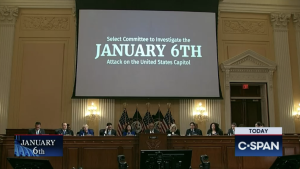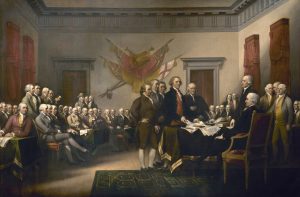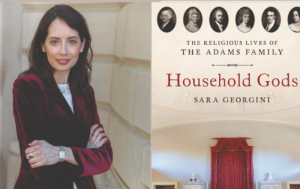Posts Tagged ‘Professor Buzzkill’
Dog Poop and Social Order in Recent History
Dr. Tim Newburn explains how modern societies (especially Britain) have organized themselves since the 1970s. He uses the new practice of cleaning up after dogs to bust myths about the orderliness of the “good old days.” The relatively recent phenomenon of “pooper scoopers” explains why some societies have been able to regulate themselves around a…
Read More3-year-old “Chimney Sweep” Video
Jason Steinhauer of the History Communications Institute joins us to explain the veracity of the film clip of a “3-year-old chimney sweep” from the 1930s that’s gone viral on social media. Is it heart-breaking evidence of child labor, or is it something else? He also explains how it went viral and what that means for…
Read MoreCovid Variants? Insurrection Hearings? Tense Elections? Was “May You Live in Interesting Times” a Famous Chinese Curse?
There’s an old Buzzkill curse — may you subscribe to interesting podcasts. If you do, your life will become so gloriously enlightened with new information, presented in such an engaging way, that you’ll forget to feed your cat, you’ll mix your laundry colors, and you’ll neglect taking your medication That reminds me of another “famous”…
Read MoreThe Many Myths About the Declaration of Independence: 4th of July Special Encore!
July 4th is upon us and two things will likely happen, at least for American Buzzkillers. The first is that we will use the July 4th national holiday as an opportunity to take a mid-summer vacation (or extend a weekend vacation). The second thing that will happen is that we will be treated to a…
Read More“Nazi” “Socialist”: What’s in a Name?
Marjorie Taylor Greene has brought up the Nazi-Socialist thing to defame certain left-wing American politicians in 2021. Obviously, she doesn’t know history. But why was Hitler’s fascist party named the “National-Socialist German Workers’ Party”? “Socialist” and “Fascist” usually have totally different, indeed opposite, meanings. How did they get combined and what did the “National Socialist”…
Read MoreAbraham Lincoln “Government of the people, by the people, and for the people…” Quote or No Quote?
Voting rights are being taken away in 2021. So we should listen again to Honest Abe. Right? But did he actually say, “…government of the people, by the people, for the people, shall not perish from the earth”? Was it his phrase originally? The background of the quote will fascinate you. Listen and learn, Buzzkillers!…
Read MoreThe Filibuster in the United States Senate
The filibuster, and the practice of filibustering in the United States Senate, is a raging topic in American politics these days. And, of course, the abuse of history has been rampant when current politicians attack or defend the filibuster. Professor Sarah Binder (_the_ expert!) explains it to you Buzzkillers! Episode 421 — Buzzkill Bookshelf Sarah…
Read MoreHistory of the Appalachian Trail
The Appalachian Trail has a long and winding place in American history and culture. Professor Philip D’Anieri takes us on a hike through the significant aspects of its history and explains what the trail’s construction and development have meant for the country. Episode 422 Link to the Appalachian Trail Conference: https://appalachiantrail.org/ —Buzzkill Bookshelf Philip D’Anieri,…
Read MoreCharlie Brown’s America: the Popular Politics of Peanuts
Professor Blake Scott Ball discusses his new book on the history of the Peanuts comic strip! Despite–or perhaps because of–its huge popular culture status, Peanuts enabled cartoonist Charles Schulz to offer political commentary on the most controversial topics of postwar American culture through the voices of Charlie Brown, Snoopy, and the whole Peanuts gang. Episode…
Read MoreHousehold Gods: the Religious Lives of the Adams Family
Reflecting on his past, President John Adams mused that it was religion that had shaped his family’s fortunes and young America’s future. For the nineteenth century’s first family, the Adamses of Massachusetts, the history of how they lived religion was dynamic and well-documented. Christianity supplied the language that Abigail used to interpret husband John’s political…
Read More









